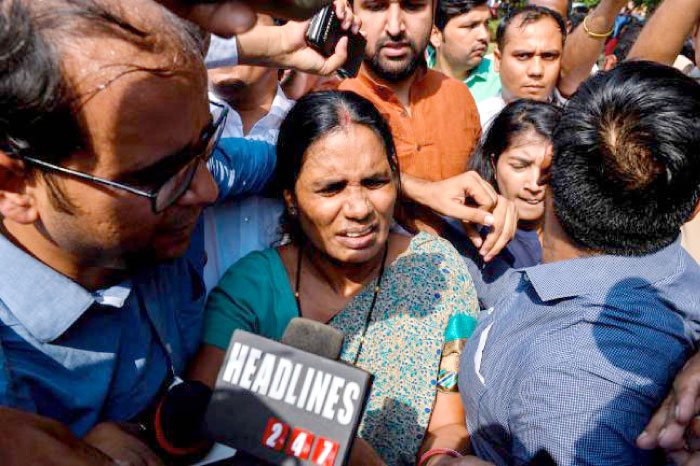
NEW DELHI — One woman was brutally gang raped and murdered, her body left disfigured in a patch of shrubs near her home in a north Indian village. Days later, another woman was abducted and gang raped in a moving car in a New Delhi suburb.
The two crimes were reminiscent of the horrific 2012 deadly gang rape in New Delhi that spurred widespread protests and harsher punishments for perpetrators. Yet they occurred just after India’s Supreme Court upheld death sentences for the rapists in that 2012 case, proving that the strengthened laws and more severe sentences aren’t deterring violent crimes against women in India, experts said.
Perpetrators still “feel they can get away with crimes against women,” said Jagmati Sangwan, of the All India Democratic Women’s Association. “There is no fear of the police or the law.”
The problem, Sangwan said, is that there are few cases that actually make it to trial and conviction. Police are registering more rape cases than before the laws were strengthened — with 34,651 counted in 2015, compared with 24,157 in 2012 — suggesting that victims are more readily coming forward to report crimes.
But those numbers are still considered only a fraction of the actual rape cases across the socially conservative country. Women’s rights activists say social taboos, public persecution and police ridicule are still keeping many victims from coming forward. Far fewer cases actually make it to trial, though there are no ready statistics for how many rape-related cases are currently in Indian courts.
“The question of women’s safety is not a priority for the police,” Sangwan said. “Police inaction and delays in registering cases, tardy investigation and the general insensitivity of government officials to women’s safety and security mean crimes against women rarely reach the prosecution stage, and most men are acquitted for lack of evidence.”
In the case of the woman whose brutalized body was found Friday in an abandoned field near the northern industrial town of Rohtak, police made no attempt to search for her despite a missing person’s report filed by her parents three days earlier, Sangwan said.
Police have since arrested two men in the case, including one suspect the victim’s parents alleged had been stalking their daughter, and they were searching for six more suspects, Rohtak police official Navdeep Virk said. An autopsy showed the 26-year-old woman had been gang raped before being pummeled in the face with bricks and run over by a car.
On Saturday night, a young woman was abducted while returning to her home in the New Delhi suburb of Gurgaon and gang raped by three men in a moving car before being set free the next morning, police said. She went straight to a police station to file a report, and police said investigators were searching for the suspects.
Both also had similarities to the deadly gang rape and torture of a 23-year-old woman on a moving bus in New Delhi in December 2012. That attack sparked public outcry and prompted the government to at least double prison terms for rape to 20 years and to criminalize voyeurism, stalking and the trafficking of women.
Earlier this month, the Supreme Court confirmed the death sentences for four of the perpetrators; a fifth died in custody, and the sixth was tried as a juvenile and sentenced to three years in a youth home. — AP